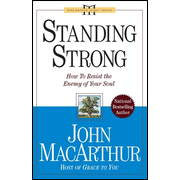Christians need to be aware of how our actions look to the world, we also need to stand firm in the faith and be ready always to make a defense to everyone who asks you to give an account for the hope that is in you, yet with gentleness and reverence. (1 Peter 3:15). That is a summation of what this book is about. The Authors teach much to be considered, studied, and thought about. The book covers the Bible’s meaning of ‘love’ and how we as Christians are to love our neighbors, even when it seems impossible, and gives reasonable and scriptural examples to apply.
The book goes over the biblical definition of evangelical ‘unity’, and tells us “Unity” must be based upon the truths found in scripture, and not for purely humanistic reasons.” Some very good points were made in this chapter that are worthy of further study. It also covers how to respond when the world calls us hypocrites. Christians are to be living lives of peace and righteousness that testify to the redeeming power of Christ. This in fact shows that we as Christians bear the mark of Jesus.
Observable ‘love’ is seen by how Christians treat one another before a watching world. Most Christians will tell you they believe in The Fundamentals of The Christian Faith, (those things which are essential to our beliefs from biblical principles ). But they are quick to be divisive when it comes to agreeing that they are not fundamentalists! Some Christians mistakenly have taken the position that believing the ‘Fundamentals’ that are taught from scripture, makes them an Extremist, which is far from the case and is not an accurate appraisal. The authors point out that Evangelicals in the last recent decade don’t want to be associated with the name; “Fundamentalists” or “Fundamentals of the Faith,” but the ‘Fundamentals of the Faith are and have been a distinguishing quality of Christianity and Evangelicalism.
Timothy George is the founding Dean of Beeson Divinity School and a Professor. He has written more than 20 books and regularly contributes to scholarly journals, and is a popular conference speaker.
John Woodbridge is research professor of Church History and the History of Christian Thought at Trinity Evangelical Divinity School in Deerfield, Illinois and is the author of many books.
Copyright © 2005 Publisher: Moody Publishers
ISBN: 080248123X
Reading / Review Date: June 8, 2009
This book can be purchased at Christianbook.com



